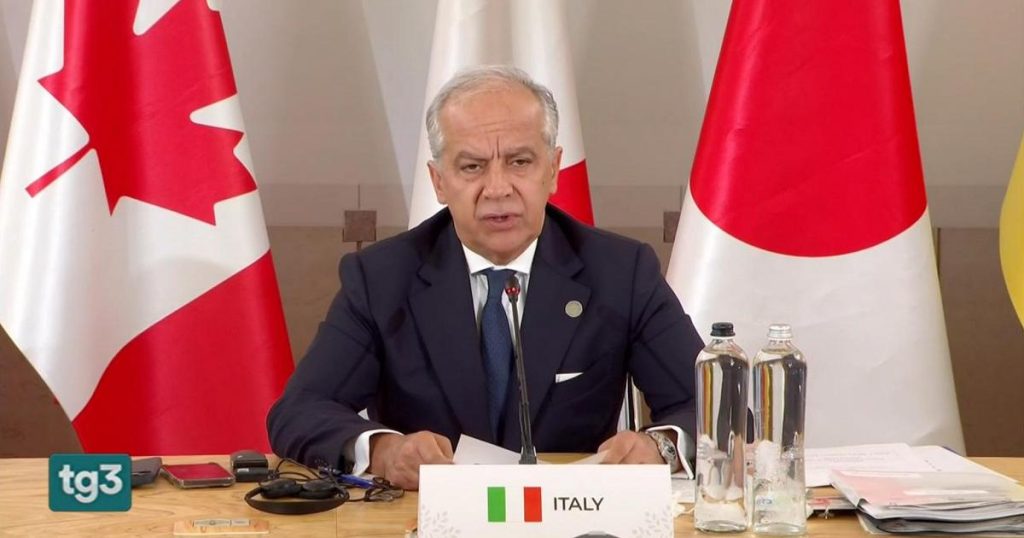During the first session of the G7 Interior Ministers meeting, Italian Minister Matteo Piantedosi emphasized the negative impact on security stemming from international crises, particularly the conflicts in the Middle East and Ukraine. Piantedosi highlighted how these conflicts contribute to polarization within societies, increasing the risk of individuals adopting violent and extremist ideologies and carrying out terrorist acts. He stressed the importance of being prepared and enhancing the ability to prevent and effectively respond to these threats.
The meeting took place at Villa Orsini in Mirabella Eclano, Avellino, with delegations from various countries in attendance. The focus was on discussing strategies to address the security challenges posed by ongoing crises in conflict zones. Piantedosi’s opening remarks underscored the need for proactive measures to counter the spread of violent ideologies and prevent terrorist attacks within G7 territories. This involved sharpening the ability to anticipate and respond swiftly to emerging threats.
The Interior Ministers meeting aimed to foster cooperation and coordination among G7 countries in addressing common security concerns arising from international conflicts. By exchanging insights and best practices, the participating nations sought to strengthen their collective resilience against threats stemming from conflict areas. Piantedosi’s call for a united front in enhancing prevention and response capabilities reflected the shared commitment to safeguarding the safety and well-being of citizens amidst a rapidly evolving security landscape.
As discussions unfolded, participants delved into specific challenges posed by the conflicts in the Middle East and Ukraine, analyzing their impact on domestic security dynamics. The exchange of information and expertise among G7 member states was instrumental in devising comprehensive strategies to tackle the multifaceted threats emanating from conflict-ridden regions. The meeting served as a platform for fostering mutual understanding and solidarity in confronting common security challenges, with a focus on enhancing preparedness and resilience in the face of evolving risks.
The G7 Interior Ministers meeting marked a crucial step towards bolstering international efforts to address security threats stemming from global crises. By prioritizing prevention and response mechanisms, the participating countries aimed to mitigate the proliferation of violent extremism and terrorism within their borders. The emphasis on fostering cooperation and coordination underscored the collective resolve to confront shared security challenges effectively and proactively. Through sustained dialogue and collaboration, the G7 nations sought to enhance their capacity to safeguard the safety and security of their populations in an increasingly complex and interconnected world.
In conclusion, the G7 Interior Ministers meeting underscored the imperative of proactive and coordinated action in tackling security challenges arising from international conflicts. By enhancing prevention and response capabilities, the participating countries aimed to mitigate the risks posed by violent extremism and terrorism. The discussions and exchanges at the meeting laid the groundwork for continued cooperation and mutual support in addressing common security concerns. Through a shared commitment to vigilance and preparedness, the G7 nations affirmed their determination to safeguard peace and security within their borders and beyond.


